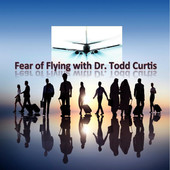In the days after the first Ebola fatality in the US in early October 2014, from a person who contracted the disease in Liberia and later flew to Dallas, TX, there have been concerns in some circles, most notably in the political arena and throughout social media, that there should be some kind of travel ban put into effect to keep other infected persons from traveling to the US. These concerns were due in part to the fact that two of the medical personnel who were involved with the treatment of the Ebola patient in Dallas also contracted Ebola.
US government passenger screening
In mid-October 2014, the US government implemented a screening process to check travelers flying to the US from Liberia, Sierra Leone, and Guinea for either Ebola-like symptoms, or exposure to the Ebola virus. This was done to manage the risk the US population faced from travelers who may be infected with the Ebola virus and who knowingly or unknowingly fly to the US.
The screening program was in effect for five US airports that accounted for about 95% of the travelers to come to the US directly from those countries. This program lessened the effect of a risk, specifically making it less likely that someone exposed to or infected by Ebola would also expose the general population to that disease.
While this screening program provided some protection from arriving passengers who may have been exposed to Ebola, it did not go as far as an outright ban of travel by people from that region, a ban which could potentially have eliminated the risk or made it much less likely to occur.
Reasons a ban may be impractical
While the idea of a ban on travel to and from the three most affected African countries, may appear to be a prudent step to take to keep the epidemic from spreading to America, there are a number of reasons that it may not be effective, and in fact may make it harder to control the Ebola epidemic in the most heavily impacted countries. A few of those reasons include the following:
- No US airline provides direct service to Liberia, Sierra Leone, or Guinea, and the US government has no legal authority ban flights to the affected countries by non-US airlines.
- US citizens and permanent residents are allowed to travel to Liberia, Sierra Leone, and Guinea without prior approval from the US government.
- Banning international travel to or from Liberia, Sierra Leone, and Guinea would have done nothing to address domestic flights taken by those already in the US who were recently in one of those three countries.
- Several thousand US residents who are or may soon be traveling between those three countries and the US are medical professionals, civil servants, military personnel, and others who are or will be part of ongoing efforts to control the Ebola epidemic.
While the US at present has no outright travel bans in place, the changing nature of the Ebola epidemic may lead to some kind of travel ban in the future. For additional details on the kinds of travel bans that could be put into place, as well as why enforcing such bans may be difficult, visit AirSafe.com's Air travel bans to control epidemics page.
Background information
AskThePilot.com on air travel bans
Air travel bans to control epidemics
Background information on Ebola
Background information on SARS










No comments:
Post a Comment